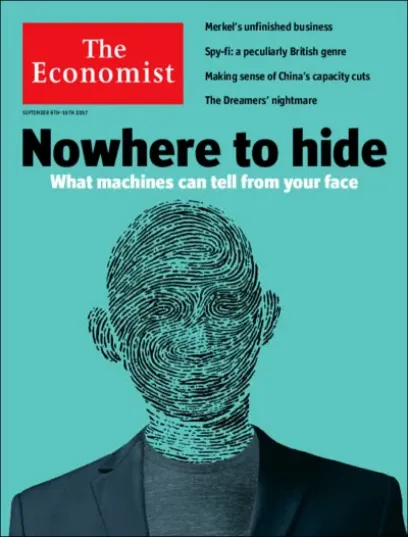
Cover of The Economist with a feature story including my research

Michal Kosinski is an Associate Professor of Organizational Behavior at Stanford Graduate School of Business. His research interests encompass both human and artificial cognition. His current work centers on examining the psychological processes in Large Language Models and leveraging Artificial Intelligence, Machine Learning, Big Data, and computational techniques to model and predict human behavior.
He co-authored Handbook of Social Psychology and Modern Psychometrics, two popular textbooks, and has published over 100 peer-reviewed papers in prominent journals such as Proceedings of the National Academy of Sciences, Nature Computational Science, Psychological Science, Journal of Personality and Social Psychology, Machine Learning, and Scientific Reports, which have been cited over 22,000 times. He is among the Top 1% of the Highly Cited Researchers according to Clarivate. His research has inspired a cover of The Economist, a 2014 theatre production titled “Privacy,” several TED talks, and a video game. It has been featured in thousands of press articles, books, podcasts, and documentaries. He received a Rising Star award from the Association of Psychological Science (2015) and an Early Achievement Award from the European Association of Personality Psychology (2023).
He was behind the first press article warning against Cambridge Analytica. His research exposed the privacy risks they exploited and assessed the effectiveness of their methods. More about his role in uncovering their actions can be found in Steven Levy’s insightful book Facebook: The Inside Story and Sander van der Linden’s article, “Weapons of Mass Persuasion.”
He earned a PhD in psychology from the University of Cambridge and two master’s degrees in psychometrics and social psychology. Before his current appointment, he held positions as a post-doctoral scholar in Stanford’s Computer Science Department, Deputy Director of the University of Cambridge Psychometrics Centre, and a researcher in Microsoft Research’s Machine Learning Group.
He donates at least 10% of his income to effective charities and hopes to inspire others to do the same.
For more about his views on issues ranging from personality to AI, listen to this podcast.